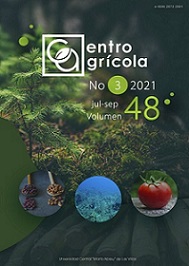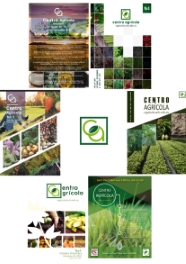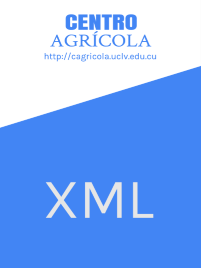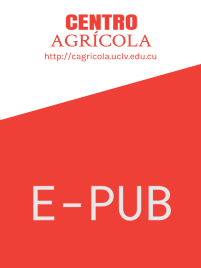CE: 1964 CF: cag064192245
RESEARCH ARTICLE
Combination of two biofertilizers and chemical fertilizers in the production of Solanum tuberosum cv. Superchola in Ecuadorian Andisols
Combinación de dos biofertilizantes y fertilización química en la producción de Solanum tuberosum cv. Superchola en Andisoles ecuatorianos
Segundo Ramiro Mora Quilismal1, Edith Aguila Alcantara2, Vinicio Revelo Ruales1, Hernán Benavides Rosales1, Luis Balarezo Urresta1
1 Escuela de Desarrollo Integral Agropecuario, Facultad de Industrias Agropecuarias y Ciencias Ambientales, Universidad Politécnica Estatal del Carchi (UPEC), Calle Antisana y Ave. Universitaria E35, Tulcán, Carchi, Ecuador
2 Departamento de Agronomía, Facultad de Ciencias Agropecuarias, Universidad Central “Marta Abreu” de Las Villas (UCLV), Carretera a Camajuaní km 5 ½, Santa Clara, Villa Clara, Cuba, CP 54830
*E-mail: This email address is being protected from spambots. You need JavaScript enabled to view it.; This email address is being protected from spambots. You need JavaScript enabled to view it.; This email address is being protected from spambots. You need JavaScript enabled to view it.; This email address is being protected from spambots. You need JavaScript enabled to view it.; This email address is being protected from spambots. You need JavaScript enabled to view it.
ABSTRACT
The present investigation assessed the effect of two biofertilizers Fosfotic and Safer micorrizas, alone or in combination, as complement to reductions in phosphorus chemical fertilizer, in the potato production in Andisols from Carchi. A field experiment with randomized block design (four replicates and 10 treatments) was carried out at the San Francisco Experimental Center of the Carchi State Polytechnic University between November 2017 and May 2018. The treatments used were selected from a previous experiment conducted in this same entity the previous year. The number and weight of tubers per plant, total and caliber production and total yield were evaluated, root dry weight and foliage phosphorus content were determined at 120 days; In addition, nutrient recovery efficiency was calculated. An economic analysis of the evaluated treatments was also performed. The combination of better productive results, greater efficiency in phosphorus absorption and good economic results was that of the treatment where the phosphorus fertilizer was reduced by 75 %, combined with both biofertilizers, followed by the treatment where the chemical fertilizer was reduced to 25 % and combined with safer mycorrhizae. The double reciprocal regression evidenced the influence of phosphorus on the production and quality of tubers. These treatments had a cost benefit ratio above 0.90, higher than the treatment with chemical fertilization.







